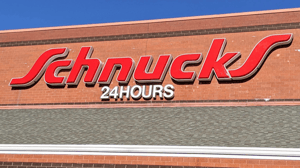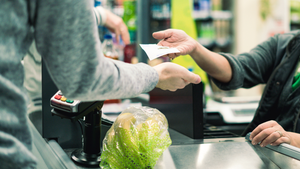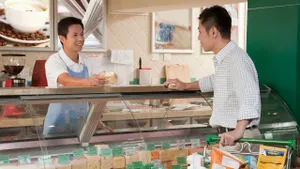Sustainability ranks high on consumers’ shopping list, new report shows
Seven in 10 supermarket shoppers try to reduce their impact on environment, says CCRRC North America report

Throughout the COVID-19 pandemic, sustainability has remained at the forefront of American consumers’ concerns, with 69% of supermarket shoppers saying they try to reduce their impact on the environment as much as possible, according to an upcoming report to be released by the Coca-Cola Retailing Research Council (CCRRC) of North America.
The study, “Sustainability and Food Retailing: A Practical Guide to Incorporating Sustainability and Supporting the Community During COVID-19 and Beyond,” which will be released the week of Sept. 27, was conducted in partnership with Murphy Research. The findings show that the pandemic put the supermarket back at the center of the community, with consumers being much more appreciative of food retail employees and are looking to local stores to demonstrate social and environmental leadership.
A preview of the report will be presented at the National Grocers Association Executive Conference in Las Vegas on Sat., Sept. 18, prior to the NGA Show on Sept. 19-21.
“With consumers increasingly considering and acting on sustainability issues when it comes to patronage and purchases, now is the time for supermarkets to actively examine the opportunities and challenges facing the industry, to best align with these growing consumer feelings,” said Michael Sansolo, research director of CCRRC North America. “Shoppers want local supermarkets to help them practice sustainability, and not doing so could mean losing shoppers down the road.”

The study found that 60% of consumers believe food retailers should help their employees and local community in addition to making a profit. Consumers say they will pay 4% more at a food retailer that supports their community and the environment, and they will drive 6.5-10.9 minutes farther to a store with a stronger impact.

The most popular initiatives consumers say they would like retailers to embrace are:
• Providing on-site recycling bins
��• Labeling products that are locally made/grown
• Offering points/prizes for waste saved through purchases and/or recycling
• Providing biodegradable bags for produce
• Selling products in a wider variety of sizes to help limit food waste

Incorporating sustainability practices and policies into stores will be evermore important in connecting with the future consumer, the report finds. Gen Z is passionate about the environment more so than any other generation, with 56% considering environmental sustainability at least most of the time when shopping.

“The supermarket industry should view these findings as an opportunity to lead in an inevitable and important space,” said CCRRC chairman John Ross, CEO of IGA Inc. “Shoppers care about sustainability issues and expect the retailers they visit to share and act on this sentiment. And, ultimately, doing what’s right is going to be good for the bottom line.”
Since its founding in 1978, the Coca-Cola Retailing Research Council (CCRRC) has conducted reports on issues that help retailers respond to the changing marketplace.
Read more about:
TargetAbout the Author
You May Also Like






